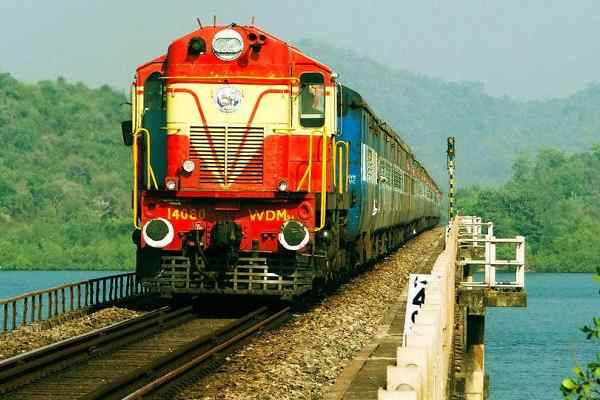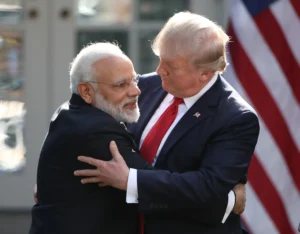Railway Recruitment Shake-Up: Government Abandons IRMS for CSE and ESE

On October 5, 2024, the Indian government made a significant policy shift by restoring the recruitment of railway officers through the Civil Services Examination (CSE) and Engineering Services Examination (ESE) conducted by the Union Public Service Commission (UPSC). This decision marks a reversal from the integrated Indian Railway Management Service (IRMS) model introduced in December 2019, which aimed to streamline various railway services into a single entity.
Background of the Policy Change
The IRMS was established with the intention of merging eight different railway services into one cohesive management structure. However, this approach faced challenges, particularly in attracting sufficient technical manpower. Over the past two years, the railways struggled to fill positions adequately under the IRMS framework, leading to concerns about operational efficiency and the suitability of recruits for technical roles.
.In a memorandum from the Department of Personnel and Training (DoPT), it was stated that the decision to revert to separate examinations was made after evaluating a proposal from the Ministry of Railways. The DoPT acknowledged the unique requirements for both technical and non-technical personnel within the ministry, prompting this change.
Details of the Recruitment Process
The new recruitment strategy allows for approximately 225 vacancies to be filled through CSE and ESE for various engineering disciplines. The breakdown of these vacancies includes:
- 75 for IRMS (Civil)
- 40 for IRMS (Mechanical)
- 50 for IRMS (Electrical)
- 40 for IRMS (Signal & Telecommunication)
- 20 for IRMS (Stores)
The applications for these positions are expected to be invited soon, with an extension of deadlines being requested to accommodate potential candidates
Implications of the Decision
This policy reversal has sparked varied reactions. Proponents argue that returning to specialized recruitment is essential for addressing the technical demands of railway operations. A senior railway official noted that relying on generalists from diverse academic backgrounds was ineffective for roles requiring specific engineering expertise.Conversely, critics, including opposition parties like Congress, have labeled this move as a failure of governance. They argue that it reflects a lack of foresight in implementing reforms and raises concerns about institutional stability within Indian Railways.
What were the main reasons behind the government’s decision to revert to the old recruitment policy

- Challenges in Recruitment: The Indian Railways faced difficulties in attracting suitable technical manpower under the Indian Railway Management Service (IRMS) framework, which merged various services into a single recruitment process. This led to a shortage of qualified officers in critical technical roles such as engineering, mechanical, and electrical disciplines
- Generalist vs. Specialist Concerns: The new system under IRMS resulted in a mix of candidates from both technical and non-technical backgrounds competing for the same positions. Many officials expressed concerns that too many recruits were generalists lacking the necessary engineering skills required for the technical demands of railway operations
. This situation prompted the government to acknowledge that a highly technical organization like the railways cannot effectively function with a predominance of generalists.
- Operational Efficiency: The operational needs of the railways necessitated a return to specialized recruitment methods. The government recognized that the previous model was not adequately meeting these needs, leading to an increased reliance on promotee or subordinate rank officers to fill vacancies
- Policy Evaluation and Feedback: The decision followed an evaluation of the IRMS system after two years of implementation, during which it became clear that the unified approach was not yielding the intended results. The Ministry of Railways sought to reintroduce separate examinations for civil and engineering services to better align with the unique requirements of both sectors
- Political Context: The change also coincided with new leadership within the Railway Board, suggesting an administrative reassessment of recruitment strategies under Chairman Satish Kumar
Overall, this policy reversal reflects a strategic move to enhance operational efficiency and ensure that railway officers possess the specific technical skills necessary for their roles.
Conclusion
The Indian government’s decision to revert to the previous recruitment policy for railway officers underscores a critical recognition of the unique challenges faced by the Indian Railways. By restoring the Civil Services Examination (CSE) and Engineering Services Examination (ESE) as the primary means of recruitment, the government aims to address the shortcomings of the IRMS framework, particularly in attracting qualified technical personnel.This shift not only emphasizes the importance of specialized expertise in maintaining operational efficiency but also reflects a commitment to ensuring that the railways are staffed by individuals equipped with the necessary skills to tackle complex engineering challenges. As this new recruitment strategy unfolds, it will be essential for stakeholders to monitor its impact on the railway system’s effectiveness and overall performance.In summary, this policy change represents a proactive step toward enhancing the quality and capability of railway officers, ultimately aiming to strengthen one of India’s most vital public sector entities.
Discover more from
Subscribe to get the latest posts sent to your email.







